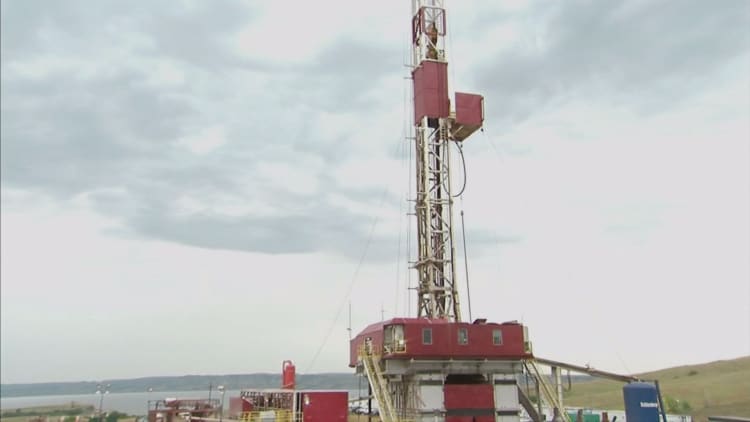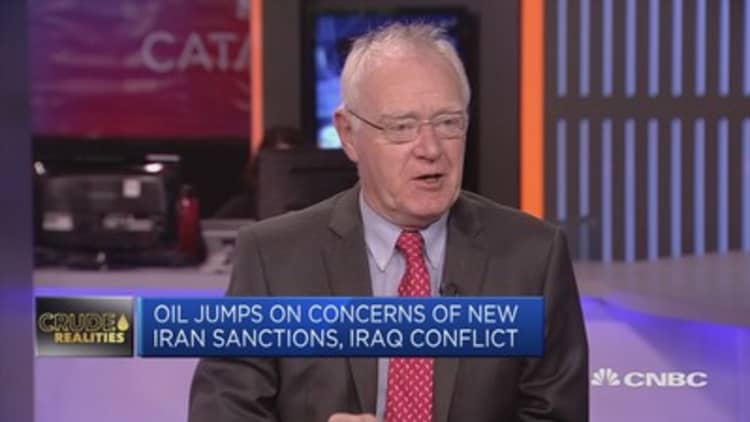
Intensifying tensions between Iraqi and Kurdish forces in the oil-rich region of Kirkuk could prompt a sustained rally in oil prices, an analyst told CNBC on Monday.
State TV reported Monday that Iraq's central government had taken control of some areas in Iraq's Kirkuk province "without fighting." However, Kurdish Rudaw TV said Iraqi and Kurdish forces had been engaged in fighting both south and west of Kirkuk since midnight Sunday.
Oil prices to the reports in Iraq during mid-morning deals, with Brent crude rising 1.4 percent to $57.97 a barrel. U.S. oil futures, meanwhile, hovered near the $52 level.
Stephen Brennock, oil analyst at PVM Oil Associates, described Monday's rally in oil prices as a "knee-jerk reaction" but warned, "it may well have the legs to go the distance if the situation worsens."
"The return of a geopolitical risk premium could usher in a sustained bout of price strength just as dithers over whether to prolong supply cuts," he said via email Monday.
The price of oil collapsed from almost $120 a barrel in June 2014 due to weak demand, a strong dollar and booming U.S. shale production. OPEC's reluctance to cut output was also seen as a key reason behind the fall. But the oil cartel soon moved to curb production — along with other oil producing nations — in late 2016.
Market response is 'incorrect'
Military maneuvers in Iraq come after the country's semi-autonomous Kurdistan region voted in a referendum last month.
While Iraqi Prime Minister Haider al-Abadi denounced the vote as unconstitutional and ordered the result to be annulled, the Erbil-based Kurdistan Regional Government defended the referendum as legitimate and pushed for dialogue with Baghdad.

"If you actually look at the market response to this news, which is to push oil prices higher on the expectations that oil supplies will be reduced, the answer is that's incorrect," Bob Parker, senior advisor at Credit Suisse, told CNBC Monday.
Parker argued that if Iraq's central government was able to take control of the disputed oil fields in Kirkuk, traders could expect Baghdad to try and increase the country's oil production in order to reap the financial benefits.
"The Iraqi government is cash-poor, for all the obvious reasons, so consequently gaining control of these northern oil fields therefore improves their ability to control a cash generator," he added.
'Likely to remain' a complete mess
The Kurds are a separate ethnic group from the Arabs and are primarily Sunni Muslims. The Iraqi army is dominated by Arabs who are Shiite Muslims.
More than 6 million Kurds are — amounting to around 20 percent of the total population — with most situated in the landlocked northern region.
The U.S. government said Sunday that it was concerned about the situation in Iraq and urged dialogue as "the best option to defuse ongoing tensions and longstanding issues."
Quilvest Wealth Management's Parker said the ongoing tensions between Iraq's central government and the disputed Kurdish region in the north of the country would "likely remain" a complete mess.
— CNBC's Ted Kemp and Nyshka Chandran contributed to this report.


